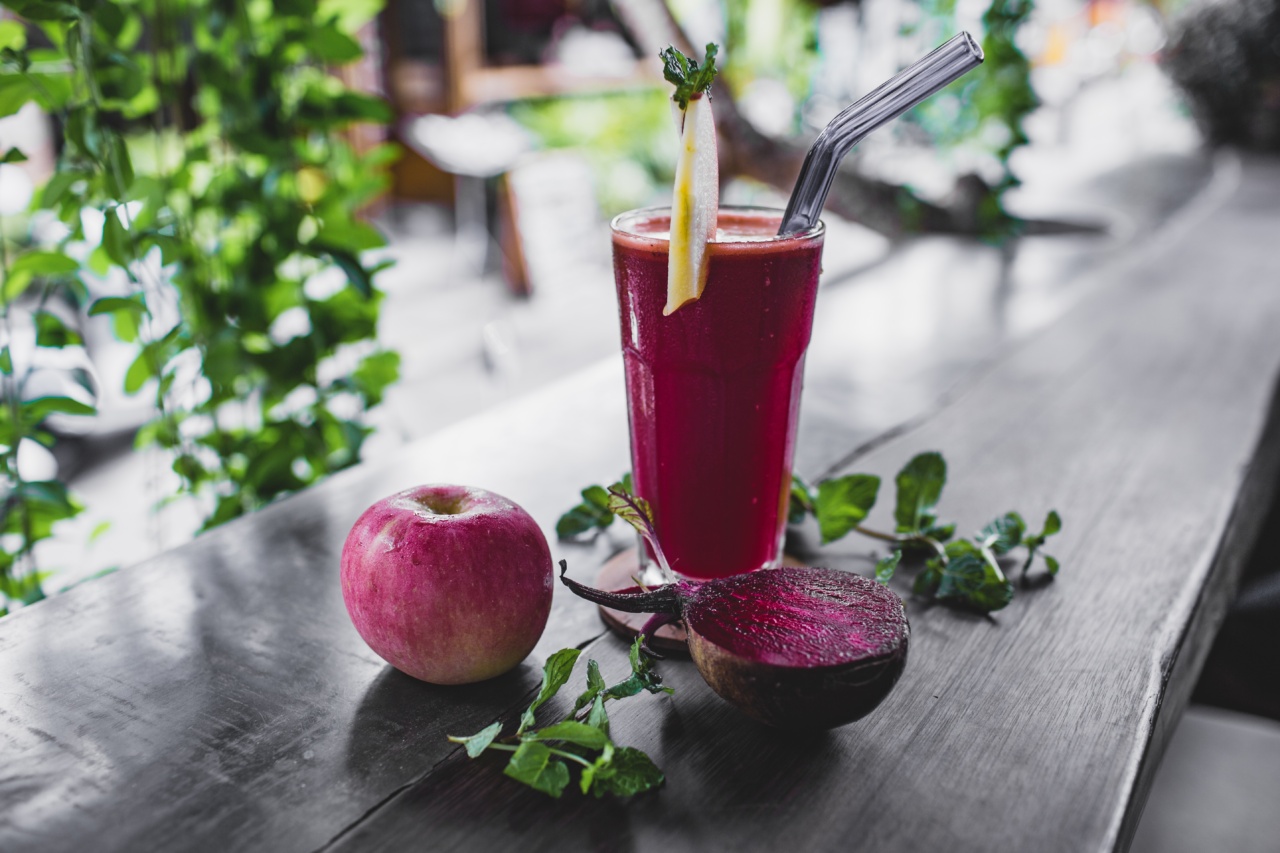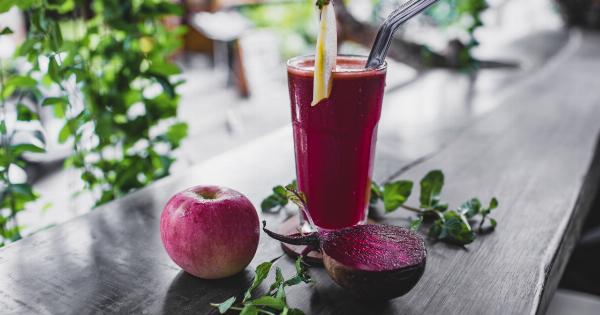High blood pressure is a common health condition that affects millions of people around the world. It is a leading cause of heart disease, strokes, and other health problems.
High blood pressure, or hypertension, can be caused by a number of factors, including genetics, lifestyle habits, and diet. In recent years, researchers have discovered that drinking beetroot juice can help lower blood pressure naturally and improve overall cardiovascular health.
What is beetroot juice?
Beetroot juice is the juice extracted from the root of the beet plant. Beets are high in nitrates, which the body converts into nitric oxide. Nitric oxide is a molecule in the body that helps to relax and widen blood vessels, which reduces blood pressure.
Drinking beetroot juice is an easy and delicious way to increase nitric oxide levels in the body and lower blood pressure.
Research on the benefits of drinking beetroot juice
There have been many studies conducted on the benefits of drinking beetroot juice for blood pressure and overall cardiovascular health.
One study published in the British Journal of Nutrition found that drinking two cups of beetroot juice a day for four weeks significantly lowered blood pressure in hypertensive patients. Another study published in Hypertension found that drinking 500 milliliters of beetroot juice a day reduced blood pressure in healthy volunteers.
How does drinking beetroot juice lower blood pressure?
Drinking beetroot juice lowers blood pressure by increasing nitric oxide levels in the body. Nitric oxide is a molecule that helps to relax and widen blood vessels, which reduces blood pressure.
When the body has more nitric oxide, blood vessels can expand more, allowing blood to flow more easily. This can help to reduce the force of blood against the walls of the arteries, which in turn lowers blood pressure.
How much beetroot juice should you drink?
The amount of beetroot juice you should drink to lower blood pressure varies depending on the individual. However, studies have indicated that drinking about two cups (500 milliliters) of beetroot juice per day can significantly lower blood pressure.
It is important to note that drinking more than this amount may cause gastrointestinal discomfort or diarrhea in some individuals.
Other health benefits of drinking beetroot juice
Drinking beetroot juice not only helps to lower blood pressure, but it has other health benefits as well. Beetroot juice is rich in antioxidants, vitamins, and minerals that are important for overall health.
Some of the other health benefits of drinking beetroot juice include:.
- Improved athletic performance
- Reduced inflammation
- Improved brain function
- Lowered risk of heart disease and strokes
- Improved digestion
Side effects of drinking beetroot juice
Drinking beetroot juice is generally considered safe for most people. However, some individuals may experience gastrointestinal discomfort or diarrhea when drinking too much beetroot juice.
Additionally, beetroot juice can cause urine to become pink or reddish in color, which is harmless but can be alarming for some people. People with low blood pressure, or hypotension, should also be cautious when drinking beetroot juice, as it may cause a further drop in blood pressure.
Conclusion
Drinking beetroot juice is an easy and natural way to lower blood pressure and improve overall cardiovascular health.
The high levels of nitrates in beets help to increase nitric oxide in the body, which relaxes and widens blood vessels, reducing blood pressure. In addition to lowering blood pressure, drinking beetroot juice also has other health benefits, such as reducing inflammation and improving athletic performance.
While beetroot juice is generally safe for most people, it is important to drink it in moderation and be aware of potential side effects.


























